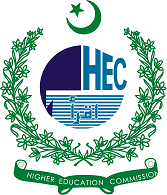Impact of Instructional Coaching on Teaching-Learning Process
DOI:
https://doi.org/10.58932/MULA0032Keywords:
Instructional Coaching, Continuous Professional Development (CPD), Teaching-learning process.Abstract
The study aims to evaluate the impact of ‘Instructional Coaching’ on teaching-learning process. The study highlights the significance of instructional coaching for supporting both teachers and students. It emphasizes the need for effective instructional coaching programs, aligned with individual teacher needs, to foster a culture of Continuous Professional Development (CPD). It also explores the implementation of instructional coaching and its influence on student learning outcomes. The study follows descriptive quantitative research design. A sample of 340 secondary school teachers of District Muzaffargarh was selected using simple random sampling. A self-structured questionnaire was developed. The findings display a positive view of instructional coaching, recognizing its potential to enhance teaching practices and improve student outcomes. Instructional coaching positively impacts student engagement, academic achievement, and critical thinking skills. Additionally, instructional coaching is seen as a valuable continuous professional development opportunity for teachers, fostering a collaborative learning environment and improving job satisfaction and motivation.
References
Aguilar, E. (2013). The art of coaching: Effective strategies for school transformation. John Wiley & Sons.
Aguilar, E. (2020). Coaching for equity: Conversations that change practice. John Wiley & Sons.
Alam, S. (2012). Crafting leaders for educational change: Head teacher’s perspectives. International Journal of Social Sciences and Education, 2(1), 193.
Ali, T. (2014). Development of teacher leadership: A multi-faceted approach to bringing about improvements in rural elementary schools in Pakistan. Professional development in education, 40(3), 352-375.
Ali, Z. B. M., Wahi, W., & Yamat, H. (2018). A review of teacher coaching and mentoring approach. International Journal of Academic Research in Business and Social Sciences, 8(8), 504-524.
Alsalhi, N. R., Abdelrahman, R., Abdelkader, A. F., Al-Yatim, S. S., Habboush, M., & Al Qawasmi, A. (2021). Impact of using the differentiated instruction (DI) strategy on student achievement in an intermediate stage science course. International Journal of Emerging Technologies in Learning (Online), 16(11), 25.
Anderson, V., & Wallin, P. (2018). Instructional coaching: Enhancing instructional leadership in schools. National Teacher Education Journal, 11(2).
Asako, B., & Walson, O. (2022). Performance Evaluation Techniques Correlates of Teachers’ Effective Productivity In Public Senior Secondary Schools In Rivers West Senatorial District of Rivers State. Available at SSRN 4199348.
Aslam, M., & Kingdon, G. (2011). What can teachers do to raise pupil achievement? Economics of Education Review, 30(3), 559-574.
Bambrick-Santoyo, P. (2016). Get better faster: A 90-day plan for coaching new teachers. John Wiley & Sons.
Bickley, S. J., & Torgler, B. (2023). 3. Behavioural economics: What have we missed? Exploring ‘classical’ behavioural economics roots in AI, cognitive psychology and complexity
Bose, D., & Camerer, C. (2021). Trust and behavioral economics. The Neurobiology of Trust, 36-53.
Boss, S., & Krauss, J. (2022). Reinventing project-based learning: Your field guide to real-world projects in the digital age. International Society for Technology in Education.
Brigman, G., Villares, E., Mullis, F., Webb, L. D., & White, J. F. (2021). School counselor consultation: Skills for working effectively with parents, teachers, and other school personnel. John Wiley & Sons.
Burggraaf, R. (2020). Digital learning environment development: action research using a situated coaching model with elementary classroom teachers integrating technology (Doctoral dissertation, University of South Carolina).
Carstens, K. J., Mallon, J. M., Bataineh, M., & Al-Bataineh, A. (2021). Effects of Technology on Student Learning. Turkish Online Journal of Educational Technology-TOJET, 20(1), 105-113.
Coate, B., & Hoffmann, R. (2022). The behavioural economics of culture. Journal of Cultural Economics, 46(1), 3-26.
Corr, P., & Plagnol, A. (2023). Behavioral economics: The basics. Taylor & Francis.
Delgado-Gaitan, C., & Trueba, H. (2022). Crossing cultural borders: Education for immigrant families in America (Vol. 6). Taylor & Francis.
DeMatthews, D. E., Scheffer, M., & Kotok, S. (2021). Useful or useless? Principal perceptions of the Texas principal evaluation and support system. Journal of Research on Leadership Education, 16(4), 279-304.
Faiqotuzzulfa, F., & Putra, S. A. (2022). Virtual Reality's Impacts on Learning Results in 5.0 Education: a Meta-Analysis. International Transactions on Education Technology, 1(1), 10-18.
Galey-Horn, S., & Woulfin, S. L. (2021). Muddy waters: The micropolitics of instructional coaches’ work in evaluation. American Journal of Education, 127(3), 441-470.
Geesa, R. L., Robbins, K., & Shively, K. (2022). The collaborative model for teaching o-SEL: Preparing educators to design online environments for social-emotional learning. Journal of Online Learning Research, 8(1), 67-100.
Gregory, A., Ruzek, E., Hafen, C. A., Mikami, A. Y., Allen, J. P., & Pianta, R. C. (2017). My teaching partner-secondary: A video-based coaching model. Theory into practice, 56(1), 38-45.
Green, C. S., & Newcombe, N. S. (2020). Cognitive training: How evidence, controversies, and challenges inform education policy. Policy Insights from the Behavioral and Brain Sciences, 7(1), 80-86.
Hanaway, M. (2020). The handbook of existential coaching practice. Routledge.
Hilderbrand, M. (2023). Weathering the Storm: Veteran Elementary Principals Navigating Hyperstress Through the COVID-19 Pandemic (Doctoral dissertation, University of Nebraska at Omaha).
Idrus, F., Asri, N. A. Z., & Baharom, N. N. (2021). Has Differentiated Instruction Gone ‘Awry’in Online Teaching and Learning?. Journal of Language Teaching and Research, 12(3), 501-510.
Inman, T. F. (2023). Educating the Gifted: Wisdom and Insights for Inspired Teaching. Taylor & Francis.
Imam, M.A. et al. (2023) ‘Contextualizing research approaches: The role of Western and Islamic philosophies in shaping methodology and knowledge creation’, Al-Irfan, 8(16), pp. 69–90.
Ismail, S. A. A., & Al Allaq, K. (2019). The nature of cooperative learning and differentiated instruction practices in English classes. SAGE Open, 9(2), 2158244019856450.
Joyce, B., & Showers, B. (2020). Student achievement through staff development. Association for Supervision and Curriculum Development.
Junker, R., Gold, B., & Holodynski, M. (2021). Classroom management of pre-service and beginning teachers: From dispositions to performance. International Journal of Modern Education Studies, 5(2), 339-363.
Karimi, M. N., & Nazari, M. (2021). Growth in language teachers’ understanding of differentiated instruction: A sociocultural theory perspective. Journal of Education for Teaching, 47(3), 322-336.
Khan, B. A., Ali, F., Vazir, N., Barolia, R., & Rehan, S. (2012). Students' perceptions of clinical teaching and learning strategies: A Pakistani perspective. Nurse education today, 32(1), 85-90.
Kho, S. H., Saeed, K. M., & Mohamed, A. R. (2019). Instructional coaching as a tool for professional development: Coaches' roles and considerations. The Qualitative Report, 24(5), 1106-1130.
Kilag, O. K. T., & Sasan, J. M. (2023). Unpacking the Role of Instructional Leadership in Teacher Professional Development. Advanced Qualitative Research, 1(1), 63-73.
Knight, D. (2007). Instructional coaching: A partnership approach to improving instruction. Corwin Press.
Knight, D. (2018). High-impact instruction: A framework for great teaching. Corwin Press.
Knight, D. S., & Skrtic, T. M. (2021). Cost-effectiveness of instructional coaching: Implementing a design-based, continuous improvement model to advance teacher professional development. Journal of School Leadership, 31(4), 318-342.
Knight, D., Rice, J., & Mcintosh, K. (2019). The impact of instructional coaching on student achievement in reading and math: A randomized controlled trial. Educational Evaluation and Policy Analysis.
Kraft, M. A., Blazar, D., & Hogan, D. (2018). The effect of teacher coaching on instruction and achievement: A meta-analysis of the causal evidence. Review of educational research, 88(4), 547-588.
Lee, J. A., Heberlein, E., Pyle, E., Caughlan, T., Rahaman, D., Sabin, M., & Kaar, J. L. (2021). Study protocol for a school-based single group pragmatic trial to promote resilience in youth: Building resilience for Healthy Kids. Contemporary Clinical Trials Communications, 21, 100721.
Lim, J., & Richardson, J. C. (2021). Predictive effects of undergraduate students’ perceptions of social, cognitive, and teaching presence on affective learning outcomes according to disciplines. Computers & Education, 161, 104063.
Ludvik, M. J. B. (2023). Outcomes-based program review: Closing achievement gaps in-and outside the classroom with alignment to predictive analytics and performance metrics. Taylor & Francis.
Main, S., & Slater, E. (2022). Online continuous professional learning: A model for improving reading outcomes in regional and remote schools?. Journal of Teacher Education, 73(2), 201-214.
Markey, K., O’Brien, B., Kouta, C., Okantey, C., & O’Donnell, C. (2021). Embracing classroom cultural diversity: Innovations for nurturing inclusive intercultural learning and culturally responsive teaching. Teaching and Learning in Nursing, 16(3), 258-262.
Michelson, R., DeWitt, A., Nagar, R., Hiniker, A., Yip, J., Munson, S. A., & Kientz, J. A. (2021). Parenting in a pandemic: juggling multiple roles and managing technology use in family life during COVID-19 in the United States. Proceedings of the ACM on Human-Computer Interaction, 5(CSCW2), 1-39.
Mok, S. Y., & Staub, F. C. (2021). Does coaching, mentoring, and supervision matter for pre-service teachers’ planning skills and clarity of instruction? A meta-analysis of (quasi-) experimental studies. Teaching and Teacher Education, 107, 103484.
Moody, T., Crouch, J., Mays, A., & Young-Norris, T. (2019). Stronger together: A case-study analysis of the implementation of a school-based mentoring program for middle school students (Doctoral dissertation, Augusta University).
Peterson-Ahmad, M. (2018). Enhancing pre-service special educator preparation through combined use of virtual simulation and instructional coaching. Education Sciences, 8(1), 10.
Polzer, J. T. (2022). The rise of people analytics and the future of organizational research. Research in Organizational Behavior, 42, 100181.
Porta, T., & Todd, N. (2022). Differentiated instruction within senior secondary curriculum frameworks: A small‐scale study of teacher views from an independent South Australian school. The Curriculum Journal, 33(4), 570-586.
ScienceOpen Preprints.
Reddy, L. A., Shernoff, E., & Lekwa, A. (2021). A randomized controlled trial of instructional coaching in high-poverty urban schools: Examining teacher practices and student outcomes. Journal of School Psychology, 86, 151-168.
Rizzo, M. J., & Whitman, G. (2023). The unsolved Hayekian knowledge problem in behavioral economics. Behavioural Public Policy, 7(1), 199-211.
Rodriguez, D., Carrasquillo, A., Garcia, E., & Howitt, D. (2022). Factors that challenge English learners and increase their dropout rates: Recommendations from the field. International Journal of Bilingual Education and Bilingualism, 25(3), 878-894.
Rogers, W. T., Hauserman, C. P., & Skytt, J. (2016). Using cognitive coaching to build school leadership capacity: A case study in Alberta. Canadian Journal of Education/Revue canadienne de l’éducation, 39(3), 1-29.
Ruggeri, K. (Ed.). (2021). Psychology and behavioral economics: applications for public policy. Routledge.
Ross, D. (2023). Economics is converging with sociology but not with psychology. Journal of Economic Methodology, 30(2), 135-156.
Smith, C., & Gillespie, M. (2023). Research on professional development and teacher change: Implications for adult basic education. In Review of Adult Learning and Literacy, Volume 7 (pp. 205-244). Routledge.
Suarez, M. E. (2022). Evaluating Two Instructional Reading Strategies of Third-Grade Students: A Quantitative Research Study (Doctoral dissertation, University of Phoenix).
Sweeney, D. (2003). Learning along the way: Professional development by and for teachers. Stenhouse Publishers.
Terblanche, N. H. D., Wallis, G. P., & Kidd, M. (2023). Talk or Text? The Role of Communication Modalities in the Adoption of a Non-directive, Goal-Attainment Coaching Chatbot. Interacting with Computers, iwad039.
Thomas, C. N., Allen, A. A., Ciullo, S., Lembke, E. S., Billingsley, G., Goodwin, M., & Judd, L. (2022). Exploring the perceptions of middle school teachers regarding response to intervention struggling readers. Exceptionality, 30(4), 261-278.
Thomson, B. (2009). Don't just do something, sit there: an introduction to non-directive coaching. Elsevier.
Toll, C. A. (2018). Progress in literacy coaching success—a dozen years on. The Clearing House: A Journal of Educational Strategies, Issues and Ideas, 91(1), 14-20.
Tondreau, A., & Johnston, K. (2023). Inquiry-Based Teacher Writing Groups as Sites for Professional Learning and Restorying Identities. The Teacher Educator, 58(1), 72-90.
Van Driel, J. (2021). Developing science teachers’ pedagogical content knowledge. In Science Teachers’ Knowledge Development (pp. 1-37). Brill.
Walsh, N. R., Ginger, K., & Akhavan, N. (2020). Benefits of instructional coaching for teacher efficacy: A mixed methods study with PreK-6 teachers in California. Issues in Educational Research, 30(3), 1143-1161.
Westmoreland, M. B. (2021). Role conflict among public high school teacher-coaches on the football field and in the classroom: An embedded single-case study (Doctoral dissertation, Southeastern Louisiana University).
Wong, M. (2021). Emotion and Decision-Making a Look into Loneliness and Behavioral Economics.
Yu, Z., Gao, M., & Wang, L. (2021). The effect of educational games on learning outcomes, student motivation, engagement and satisfaction. Journal of Educational Computing Research, 59(3), 522-546.




